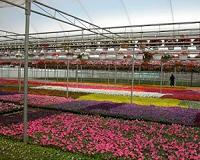 |
Osaka (AFP) March 21, 2011 Japan has ordered a halt to shipments of certain foods from four prefectures after abnormal radiation levels were found in products near a quake-hit nuclear plant, a government spokesman said Monday. But even eating or drinking the contaminated foodstuffs several times would not be a health hazard, Yukio Edano said at a news conference. "So I would like you to act calmly," he said. The suspension applies to spinach and another type of green vegetable from the prefectures of Fukushima, Ibaraki, Tochigi and Gunma, as well as milk from Fukushima. The discovery of tainted foodstuffs has fuelled public anxiety about the atomic crisis at the Fukushima No. 1 plant, 250 kilometres (155 miles) northeast of Tokyo, and its impact on health. Several countries have said they will screen food imported from Japan for radiation contamination. Taiwan found a shipment of fava beans had been slightly contaminated on Sunday and stepped up checks Monday, officials said. The Fukushima nuclear plant was severely damaged by the 9.0-magnitude quake and tsunami on March 11. Radioactive substances have since leaked into the air. Edano suggested that plant operator Tokyo Electric Power Co (TEPCO) would have to pay compensation to affected farmers. "Primarily, since it's a nuclear disaster, Tokyo Electric Power is supposed to be responsible," he said. Authorities told people not to drink the tap water in a village near the Fukushima plant after high levels of radioactive iodine were detected. Abnormal but much lower levels of radioactive substances had already been found in the water supply in Tokyo and surrounding prefectures including Fukushima.
earlier related report All shipments of fresh and frozen fruits, vegetables, fish and milk products, as well as mineral water from Japan will be checked, said Hsiao Mei-ling, deputy chief of the Department of Health. Until Monday's announcement only random checks had been carried out, she said. The tightened checks will also be imposed on processed food items such as instant noodles, chocolate, rice crackers and biscuits manufactured in Japan after the killer quake and tsunami, she said. The move comes after Taiwanese authorities on Sunday discovered radiation particles on 14 kilograms (30.8 pounds) of fava beans from Kagoshima. It was the first report of polluted food being found outside Japan since the crisis at a nuclear power plant triggered by the duel natural diasasters 10 days ago.
earlier related report The emergency at the Fukushima No. 1 atomic power station, located 250 kilometres (155 miles) northeast of Tokyo, has sent radioactive material into the air, and sparked public anxiety about a more dramatic radiation release. The March 11 earthquake knocked out reactor cooling systems, and engineers have since battled to contain rising temperatures. Firefighters have sprayed tonnes of seawater onto the reactor fuel-rod pools at the complex. When asked about the possibility of contaminated water from the site flowing into the ocean, an official from Japan's nuclear safety agency told AFP: "Radiation monitoring will be conducted for seawater. "There is a possibility that a very small amount of radiation may flow into the sea. But even if it happens, considering the current radiation level in the air, there will not be an impact on human health," the official said. Abnormal levels of radiation have already been detected in samples of milk and spinach taken from areas near the plant, as well as in tap water in Tokyo and surrounding prefectures including Fukushima. Authorities in affected zones are now testing produce and other foods, but a health ministry official and a local official in Fukushima prefecture told AFP on Monday that so far, seafood was not being tested.
Share This Article With Planet Earth
Related Links Farming Today - Suppliers and Technology
 New Software Calculates Heating Costs In Greenhouse Operations
New Software Calculates Heating Costs In Greenhouse OperationsToledo OH (SPX) Mar 21, 2011 In parts of the United States where ornamental and vegetable plants are produced in greenhouses during cold seasons, heating costs are second only to labor costs for greenhouse operators. Greenhouse growers are faced with important management decisions that rely on understanding how temperature settings, heating systems, fuel types, and construction decisions influence their heating costs. ... read more |
|
| The content herein, unless otherwise known to be public domain, are Copyright 1995-2010 - SpaceDaily. AFP and UPI Wire Stories are copyright Agence France-Presse and United Press International. ESA Portal Reports are copyright European Space Agency. All NASA sourced material is public domain. Additional copyrights may apply in whole or part to other bona fide parties. Advertising does not imply endorsement,agreement or approval of any opinions, statements or information provided by SpaceDaily on any Web page published or hosted by SpaceDaily. Privacy Statement |